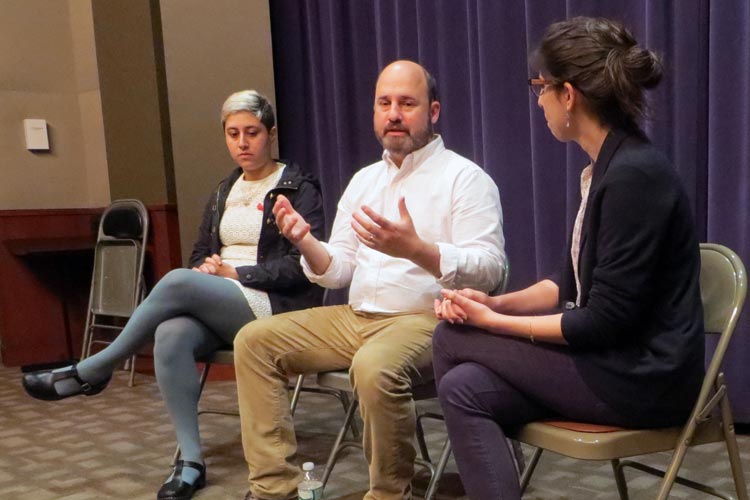The following questions and answers are excerpted from a conversation that followed the NBR screening of Ivory Tower.
Do you support the view that college is worth it, or do you feel that there are substitutes that should be used in lieu of college?
Rossi: That is the key question that emerges at the end of the film. And I think that there are many different ways to consider both that question and an answer. And I think in statistical terms – we saw just a few days ago a piece in the Times about the wage premium one gains from earning a BA versus someone with only a high school diploma, and it’s about one million dollars – so on that metric, yes, as was written in the piece, it’s certainly, surely, completely, “worth it.” But that number misses some other very important caveats and qualifying viewpoints that we hope we can accommodate in a ninety-minute movie. For example, over 50% of the students at public universities are not completing their degrees in six years. And it’s 68% in just four years. So for those students, was it worth it to go to school and incur all that debt if they didn’t get their BA? I think for many the answer is ‘no.’
Students are expecting to not only get a BA, but to have a great time doing it!
Clearly, there should have been some sort of discussion between the administration of Cooper Union and students to try to find some sort of solution that would allow the school to avoid having to charge tuition. If there had been no way to avoid charging tuition, though, what would have been your stance?
Sobel: That’s a difficult question to answer, because as part of the working group that was formed to address the problem, I was able to go line by line through the budget with members of the board who were also interested in maintaining a free education for students. And what we found was that it was entirely possible to do, simply by making some obvious costs cuts. A lot of it stems from an idea that the film puts forward, which is that Universities have become more and more corporatized. This structure is antithetical to the idea of an administration reducing its salary, to reducing the number of new building projects, to reducing the number of consultants they take on; “free” just doesn’t work with that model. As the film mentions, many highly compensated administrators never set foot on campus or have anything to do with educating students, the mission of the school, or interacting with parents. There’s a direct relationship between the growth of the administrative structure and its willingness to cannibalize the institution they’re supposedly serving in order to preserve their salaries and departmental budgets. So we produced a basic outline of how to reduce costs to a sustainable level, and of course there wasn’t any interest in doing that.
What do you think the future holds for colleges in the United States?
Rossi: I think that the idea that Universities are treating students more like consumers or paying customers is related to the exponential increase in cost. And as students pay more money, they become more demanding about what they want to receive. And as can be seen throughout popular culture, students are expecting to not only get a BA, but to have a great time doing it! And in a very insidious way, that bleeds into the classroom in the form of perverse incentives—where the professor is actually trying to satisfy the student-as-consumer, versus actually pushing them harder and creating a more rigorous environment. I think that if schools were to adopt a tuition cap, or at least peg tuition increase to inflation, that would be one start to addressing this problem. And there are other state-based initiatives, such as in Oregon, where students wouldn’t have to pay off their debt until they had a certain amount of income. And also President Obama proposed that there should be new types of rankings that take total debt incurred into account along with other factors, and encouraging students to select a school on that basis.

